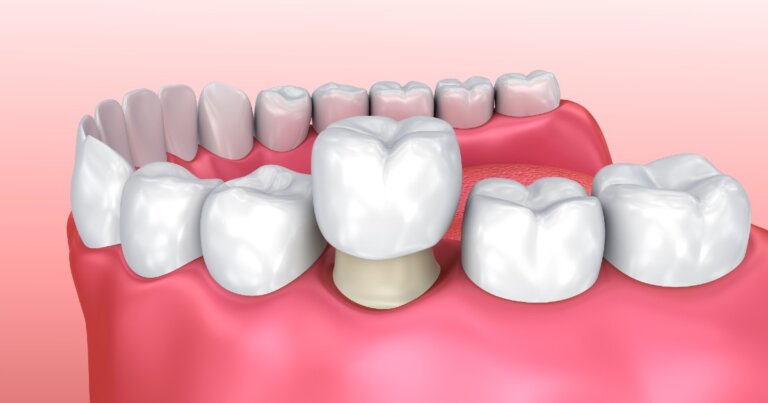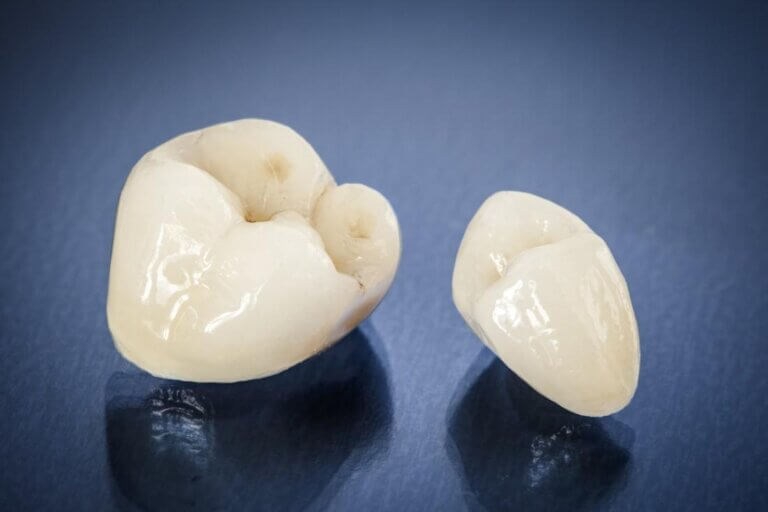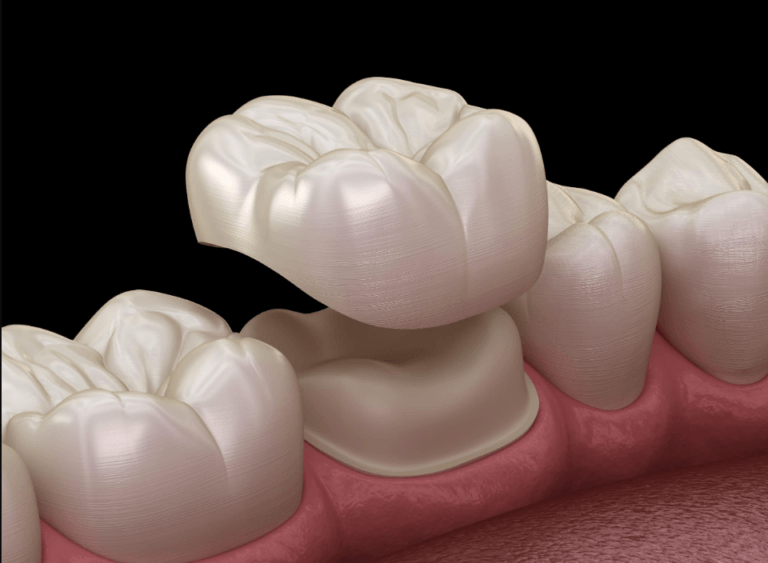Lithium Disilicate Dental Crown

What Is A Lithium Disilicate Crown?
Lithium Disilicate crowns are advanced ceramic crowns known for their strength and aesthetic qualities. Made from a material with high translucency called Lithium Disilicate (often called E-Max), these crowns blend well with natural teeth, providing a beautiful and durable solution to restore compromised teeth.
Before you deciding on whether A Lithium Disilicate Crown is right for you, there are some things you should know:
- Who Needs A Lithium Disilicate Crown?
- Benefits Of A Lithium Disilicate Crown
- Alternatives To A Lithium Disilicate Crown
- How Much Does A Lithium Disilicate Crown Cost?
- Steps In The Lithium Disilicate Crown Procedure
- Frequently Asked Questions About Lithium Disilicate Crowns
If you have any further questions about A Lithium Disilicate Crown or other dental services offered at Atlas Dental, please contact us.

Free phone consultation
Have a question about Dental Crowns? Schedule a free phone consultation with our cosmetic dentist.

5 star google reviews
Our patients love us! See for yourself why patients are choosing Atlas Dental for their Dental Crowns.

Book Emergency Crown Visit online
Have a chipped or broken tooth and need a dental crown? Book online for emergency dental crown treatment.
Who Needs A Lithium Disilicate Crown?
A lithium disilicate crown can be an ideal choice for those experiencing:
- Severely Damaged or Decayed Teeth: Provides strength and protection.
- Cracked or Fractured Teeth: Adds stability and support.
- Teeth with Large Fillings: Reinforces weakened teeth.
- Worn Down Teeth: Restores both appearance and function.
- Root Canal Treated Teeth: Protects the tooth structure and prevents reinfection.
- Cosmetic Concerns: Corrects misshapen, discolored, or asymmetrical teeth.
It’s important to note that the specific treatment recommendation will depend on an individual’s unique dental condition. Consulting with a qualified dentist is crucial to determine if a Lithium Disilicate (Emax) crown is the best option for you. If you have further questions about Lithium Disilicate Crowns, please contact us.

Benefits Of A Lithium Disilicate Crown
Opting for lithium disilicate crowns offers several key benefits:
- Strength and Durability – These crowns are highly resistant to chipping and fractures, lasting over 10 years with proper care.
- Natural Appearance – The translucency of lithium disilicate closely resembles natural teeth, ensuring a seamless smile.
- Precise Color Matching – Dentists can match the crown’s color to your natural teeth, resulting in a harmonized, aesthetic look.
- Minimal Tooth Preparation – Requires less removal of the tooth structure compared to other crowns.
- Biocompatibility – Safe for individuals with metal sensitivities or allergies.
- Long-lasting – With excellent resistance to wear, these crowns can be a reliable, long-term solution.
Incorporating the advantages of Lithium Disilicate (Emax) crowns into your dental restoration decision-making process can lead to a reliable, aesthetically pleasing, and long-lasting solution. If you have further questions about the benefits of a Lithium Disilicate Crown, please contact us.
Alternatives To A Lithium Disilicate Crown
While lithium disilicate crowns are versatile, there are other options:
- Zirconia Crowns: Offer exceptional strength and durability; ideal for molars where more force is applied.
- Porcelain-Fused-to-Metal (PFM) Crowns: Combine the strength of metal with the aesthetics of porcelain.
- Gold Crowns: Durable and biocompatible, but their appearance may not appeal to everyone.
Your dentist will consider factors such as tooth location, esthetic requirements, durability, and your overall oral health when recommending the most appropriate crown material. If you have further questions about all your options including a Lithium Disilicate Crown, please contact us.
Cost of Dental Crown
The cost of a Dental Crown ranges between $1349-1449. The codes relevant to dental crowns in the Ontario Dental Association’s Suggested Fee Guide appear as follows:
Crowns, Porcelain/Ceramic/Polymer Glass
- 27201 – Crown, Porcelain/Ceramic/Polymer Glass: $1099 + Dental Lab Fee ($250-350)
Some crowns are more expensive than others. The three most common dental crown types listed in order from least expensive to most expensive are:
- All Ceramic crowns including Zirconia crowns and Lithium disilicate crowns
- Porcelain fused to metal crowns
- Full metal crowns, including gold crowns
Dental crowns are considered a major restorative service under all dental insurance plans and may or may not be covered by your dental insurance. Be sure to find out from your dental insurance plan provider how much you are eligible for before going ahead with dental treatment. Your dentist can help you submit an predetermination to your dental insurance.
For patients without dental insurance, Atlas Dental is pleased to offer dental financing through iFinance Dentalcard. Affordable payment plans start at 7.95% for terms of 6 months to 6 years. To learn more about Dentalcard dental treatment financing, follow this link.
Steps In The Lithium Disilicate Crown Procedure
A lithium disilicate crown placement usually involves two appointments:
First Appointment
- Consultation and Assessment – Your dentist will evaluate the tooth’s condition and take X-rays.
- Tooth Preparation – A thin layer of enamel is removed to accommodate the crown.
- Impressions – Impressions are taken to create a custom crown with an 3D computer intraoral scanning technique.
- Temporary Crown – A temporary crown is placed until the permanent one is ready.
Second Appointment
- Temporary Crown Removal – The temporary crown is removed.
- Fit and Adjustments – The new crown is tested for fit, alignment, and appearance.
- Cementing – The crown is bonded to your tooth and polished for a natural finish.
The first appointment usually takes 1 hour to accomplish, and the second appointment can take up to 30 minutes. If you have further questions about how we make your Lithium Disilicate (Emax) crown, please contact us.

Frequently Asked Questions About Lithium Disilicate Crowns
- How long do these crowns last?
With proper care, they can last between 10 and 15 years or more.
- How should I care for my lithium disilicate crown?
Maintain good oral hygiene by brushing and flossing daily, and attend regular dental check-ups to ensure the longevity of the crown. Read our dental crown post-insertion instructions.
- What dental insurance covers this procedure?
Coverage varies, so check with your provider or ask your dentist for a pre-determination.
- Can a lithium disilicate crown stain over time?
Lithium disilicate crowns are highly resistant to staining due to their non-porous surface, but maintaining proper oral hygiene is essential to keep them looking their best.
Lithium disilicate crowns provide a strong, natural-looking solution for restoring damaged or missing teeth, combining durability with exceptional aesthetics. If you’re interested in learning if a lithium disilicate crown is right for you, contact us at Atlas Dental or book a free phone consultation with our cosmetic dentist.

